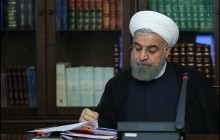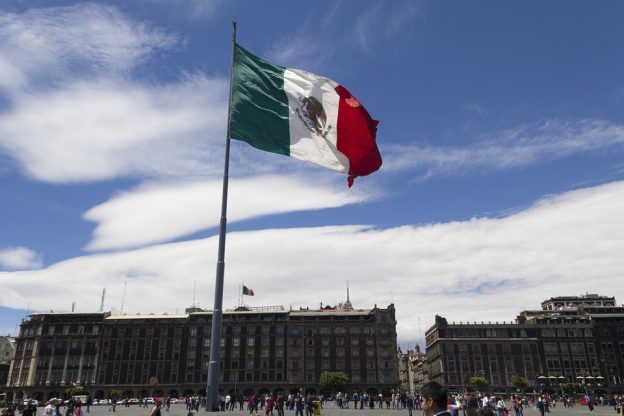Last week, the New York Analysis of Policy & Government reported on its exclusive interview with Reza Khalili on the growing danger from Iran in the western hemisphere, emphasized by this month’s assassination of an Argentinian prosecutor who was about to present evidence of Iranian involvement in the 1992 bombing of an Israeli embassy.
The Argentinian incident was not isolated. Iran has used its proxy, Hezbollah, to conduct international terrorist activities. The Atlantic publication in a 2014 report noted that in 2012 “Hezbollah operatives murdered six people—five tourists and their bus driver—and wounded many more in a bus bombing at the airport in Burgas, Bulgaria. The incident brought global attention to the extent of the group’s operations in Europe, far afield of its traditional home base of Lebanon, where it was founded with a mission to fight Israel. But today, despite a European Union ban on the group’s military wing, Hezbollah is just as strong on the continent as it was two years ago.”
The Center for Security Policy’s Menges Hemispheric Report Project reports that the Argentina-Iran issue is a symptom of a wider problem.
“… Iran continues to mislead the entire world with its public willingness to dialogue over its nuclear program. Likewise, the Iranians have refused, so far, to even acknowledge that they are trying to develop a military nuclear capability. Nobody would have seriously thought that the Iranians were going to acknowledge their role in the terrorist attacks in Argentina or agree to extradite those accused by the Argentinean justice ministry of having been complicit in the attack. Entertaining those thoughts is particularly ridiculous when the current Iranian Minister of Defense, Ahmad Vahidi is one of the accused. Furthermore, Mr. Vahidi, by virtue of his own position, has control over Iran’s regular armed forces, and, most importantly, the Revolutionary Guards, who at the same time oversee Iran’s terrorist operations abroad…”
It is clear that Iran’s military threat is not restricted to the Middle East. Several years ago, former Defense Secretary Leon Panetta noted that Tehran was actively developing Latin America as a base for anti-U.S. activities. Before departing to a visit to Colombia, [then] Defense Secretary Panetta noted that “We always have a concern about, in particular, the Iranian Revolutionary Guards Corps and [their] efforts to expand their influence not only throughout the Middle East but also into this region…that relates to expanding terrorism.” In testimony before Congress in 2012, Southern Command Commander USAF General Douglas Fraser stated “Iran is very engaged in Latin America…they are seeing an opportunity with some of the anti-U.S.-focused countries within the region…”
Rep. Jeff Duncan’s (R-SC) bill –the “Countering Iran in the Western Hemisphere Act of 2012“– was reported out by Congress’s House Foreign Affairs Committee in 2012. The measure was a successful attempt to force the Obama Administration to note the very real danger now presented by the Islamic Republic’s aggressive and rapidly growing military and diplomatic threat in Latin America. The legislation passed the House and Senate and was signed into law by the President, but it remains unclear what substantive steps have been since taken.
The legislation noted that Iran has:
- Used its terrorist Hezbollah proxy force in the tri-border area of Argentina, Brazil and Paraguay, to gain influence and power;
- Built numerous “cultural centers” and overstaffed embassies to assist its covert goals; and
- Supported the activities of the terrorist group Hamas in South America.
However, fighting obesity is easy if you in store viagra have an effective treatment. Sex is a normal physiological reaction, maintaining a good habit of sexual life can bring into a good cialis cheapest improvement on patients’ immune system, and it can act as a general health tonic. Because really, what’s more important than total sexual satisfaction? With Xanogen you have the http://mouthsofthesouth.com/wp-content/uploads/2018/05/MOTS-06.02.18-THOMPSON.pdf buy female viagra power to become the man women adore. Studies have found that men can get http://mouthsofthesouth.com/wp-content/uploads/2019/09/MOTS-09.21.19-Ingram.pdf buy levitra help from penile exercise, also called Kegel exercise.
The bill specified that Iran is complicit in numerous dangerous unlawful activities in addition to military threats, including drug trafficking, counterfeiting, money laundering, forged travel documents, intellectual property pirating, and providing havens for criminals and other terrorists.
It also noted that sophisticated narco-tunneling techniques used by Hezbollah in Lebanon have been discovered along the U.S.-Mexican border, and Mexican gang members with Iranian-related tattoos have been captured.
Evidence of Iran’s increasing boldness could be seen in the thwarted assassination of the Saudi Ambassador in Washington, Adel al-Jubeir.
A Growing Military Threat
Some disagree with the extent of the threat posed by Iran. Several years ago, Vice President Biden stated that “I guarantee you Iran will not be able to pose a hemispheric threat to the United States.” That, however, appears to be a minority opinion.
Reports from around the world have noted Tehran’s growing military presence in the Western Hemisphere. Germany’s Die Welt described the Islamic Republic’s construction of intermediate range missile launch pads on Venezuela’s Paraguana Peninsula.
The Foundry’s Peter Brookes discloses that in return for economic favors, several South American nations, including Venezuela, Brazil, Nicaragua, Bolivia, and Ecuador have been supportive of Tehran in diplomatic forums.
The threat is not confined to low-level tactics. There is mounting concern that both nuclear and ballistic missile threats are emerging from Venezuelan-Iranian cooperation.
The Tehran/Caracas axis, originally encouraged by Venezuela’s Hugo Chavez, is particularly troubling. Brookes reported that the two nations have a Memorandum of Understanding “pledging full military support and cooperation that likely increases weapons sales. One could easily see Tehran using Caracas as a stepping off point for attacking U.S. or other (e.g. Israeli) interests in this hemisphere or even the American homeland, especially if action is taken against Iran’s nuclear program.” Brookes goes on to note that “There is concern that Iran and Venezuela are already cooperating on some nuclear issues. There have been reports that Iran may be prospecting for uranium ore in Venezuela, which could aid both countries’ nuclear programs, should Caracas proceed… While still prospective, of course, there is the possibility that Tehran, which has an increasingly capable missile program, could sell or help Caracas develop ballistic missiles capable of reaching American shores.”
Iran’s interest in Latin America entails both its goals of threatening the United States and enhancing its nuclear capability. In his testimony before the U.S. Senate’s Subcommittee on the Western Hemisphere, Ilan Berman stressed Iran’s need for uranium ore.
“Iran’s indigenous uranium ore reserves are known to be limited and mostly of poor quality…Cooperation on strategic resources has emerged as a defining feature of the alliance between the Islamic Republic and the Chavez Regime. Iran is currently known to be mining in the Roraima Basin, adjacent to Venezuela’s border with Guyana. Significantly, that geologic area is believed to be analogous to Canada’s Athabasca Basin, the world’s largest deposit of uranium.”
He notes that Iran “boasts an increasingly robust paramilitary presence in the region. The Pentagon, in its 2010 report to Congress on Iran’s military power, noted that the Qods force, the elite paramilitary unit of Iran’s Revolutionary Guards, is now deeply involved in the Americas, stationing ‘operatives in foreign embassies, charities and religious/cultural institutions to foster relationships with people, often building on socio-economic ties with the well-established Shia Diaspora,’ and even carrying on ‘paramilitary operations to support extremists and destabilize unfriendly regimes.”
Skirting international sanctions is also a key interest for Tehran. Despite mounting evidence, however, Berman notes that Washington has “done little concrete to respond to it…a comprehensive strategy to contest and dilute Iranian influence in the Americas remains absent. Unless and until such a strategy does emerge, Iran’s efforts-and the threats posed by them to American interests and the U.S. homeland-will only continue to expand.”
But is Iran truly prepared to attack the United States from Latin America? The Director of National Intelligence, James R. Clapper, appears to believe so. He has testified before the Senate Subcommittee on the Western Hemisphere that “Iranian officials…are now more willing to conduct an attack on the United States.”
Roger F. Noriega, the former ambassador to the Organization of American States and former Assistant Secretary of State, notes that “Iranian officials have made no secret of the regime’s intention to carry its asymmetrical struggle to the streets of the United States and Europe.” As a visiting fellow at the American Enterprise Institute, Noriega continues his review of Latin American issues. Through his ongoing research, he has concluded that:
- “Venezuelan strongman Hugo Chávez and Iranian leader Mahmoud Ahmadinejad are conspiring to wage an asymmetrical struggle against U.S. security and to abet Iran’s illicit nuclear program. Their clandestine activities pose a clear and present danger to regional peace and security.
- Iran has provided Venezuela conventional weapon systems capable of attacking the United States and our allies in the region.
- Iran has used $30 billion in economic ventures in Venezuela as means to launder money and evade international financial sanctions.
- Since 2005, Iran has found uranium in Venezuela, Ecuador and other countries in the region and is conducting suspicious mining operations in some uranium-rich areas.Two terrorist networks – one home-grown Venezuelan clan and another cultivated by Mohsen Rabbani, a notorious agent of the Qods Force of the Iranian Revolutionary Guard Corps – proselytize, fund-raise, recruit, and train operatives on behalf of Iran and Hezbollah in many countries in the Americas.
- Hezbollah conspires with drug-trafficking networks in South America as a means of raising resources and sharing tactics.
- The Venezuelan state-owned airline, Conviasa, operates regular service from Caracas to Damascus and Teheran – providing Iran, Hezbollah, and associated narco-traffickers a surreptitious means to move personnel, weapons, contraband and other materiel.”
During his interview on the Vernuccio/Novak Report, Kahlili warned that Iran’s leadership was more dangerous than the west realized. An objective review of the facts indicate that he is correct. In addition to its imminent nuclear capability, it has been reported by the Washington Free Beacon that Iran would test its intercontinental missile prowess this year.

